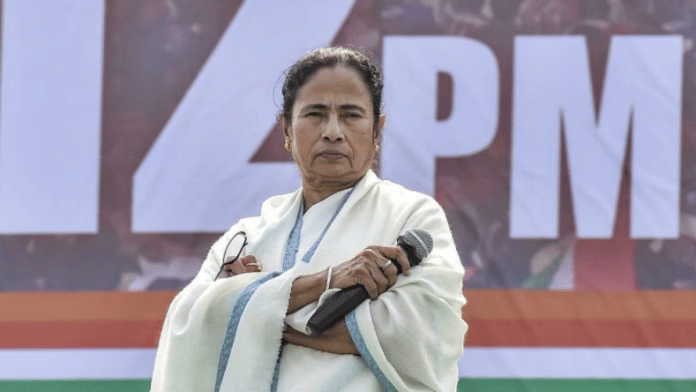This is 2025. Indian women have led space missions, and headed states and companies worth of crores. But back on earth, they still get asked the most primitive question—why were you out at night?
West Bengal Chief Minister Mamata Banerjee’s recent remark on the Durgapur rape case is a reminder that no matter what, women will get the blame for whatever happens to them.
“She was studying in a private medical college. Whose responsibility is it? How did she come out at 12.30 at night?” said Banerjee.
This shows that for Indian politicians, women’s safety is a matter of curfew but not justice. And this is not the first time Banerjee has made such remarks and she is not alone either. Every few months some other leader slips into the same old pattern of blaming the victim. They make us step out after sunset and not the men who do the assault or State failure to protect us.
Admission of govt failure
Almost a decade ago, the Nirbhaya case shook the nation. The outrage on the streets of Delhi. People were protesting and it was unprecedented. And, even then, people asked why that girl was out late at night. Sheila Dikshit, then chief minister, may not have said anything like this, but she too failed to grasp the anger and pain of Indian women who refused to be lectured anymore.
Before that, a Delhi Police Commissioner had advised women to “go out with their brothers or fathers” if they wanted to step out after dark. What does that even mean? That women cannot exist freely in public spaces without a male guardian? That the State is absolving itself of responsibility after sunset?
When politicians or police officials say such things — they are admitting administrative failure. They are saying: we cannot make our streets safe, we cannot ensure justice, so stay indoors. It’s a confession disguised as advice.
This question — why were you out? — starts long before politics enters the frame. It begins at home. Parents ask it first, then relatives, then neighbours, then teachers, principals, and finally the police officer or the politician. It’s as if a woman’s right to move, work, or live freely is always up for public discussion. The smallest unit of control becomes the family; the largest, the State. Both speak the same language.
Also read: Zubeen Garg saga is resembling Sushant Singh Rajput. Did we not learn our lesson?
Not a matter of safety
I am an independent woman. I earn, I pay taxes, I contribute to this country. But my freedom to walk alone, to work late, to exist without explanation is still seen as a provocation and I get lectures from people from time to time about my choice of going to places.
From childhood, women are told how to live by everyone. Not to talk so loud, not to go out at night, how to dress, when to speak, how to behave — and we grow up believing that following rules will keep us safe. But safety cannot be earned through obedience. It must be guaranteed through accountability — by the very State that asks us not to go out.
So no, the question isn’t why was she out at night. The question is — why is India still a lawless jungle after dark?
(Edited by Ratan Priya)






